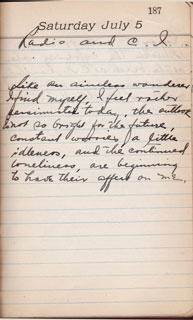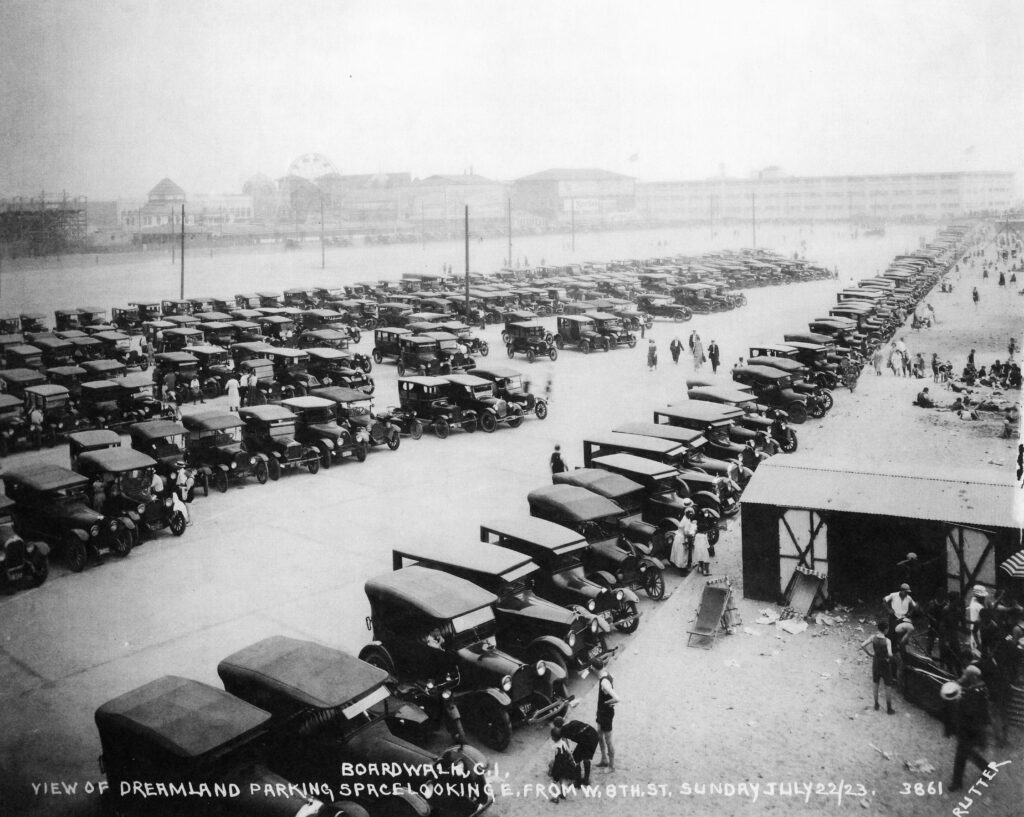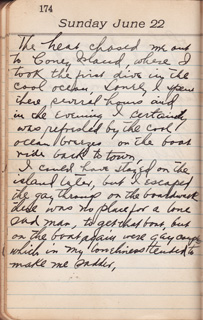
The heat chased me out
to Coney Island, where I
took the first dive in the
cool ocean. Lonely I spent
there several hours and
in the evening I certainly
was refreshed by the cool
ocean breezes on the boat
ride back to town.
I could have stayed on the
island later, but I escaped
the gay throngs on the boardwalk
there was no place for a lone
sad man, to get that boat, but
on the boat again were gay couples
which in my loneliness tended to
make me sadder.
————————–
Matt’s Notes
Papa’s description of his lonely trip to Coney Island reminds me of his New Year’s Eve entry, when he used similar words to describe the sense of isolation and longing he felt among the “gay throngs.” It’s a cinematic, melodramatic scenario in which the fine weather and ocean vista remain nearly unseen as we maintain tight focus on a single, sad man; in which happy couples materialize and whirl toward him from every angle like leering funhouse ogres; in which his only moment of respite comes when he makes his way to the bow of the Coney Island ferry, turns away from his fellow passengers and their contentment, faces lower Manhattan, and closes his eyes against the “cool ocean breezes.”

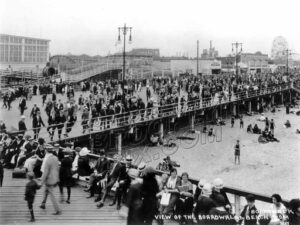
Of course, to cut from Papa, lonely in Times Square on New Year’s Eve to Papa, lonely in Coney Island on the cusp of summer, is to mislead the audience. A casual viewer might see only a montage of a man boxed in by melancholy, a man who wanders, unmoved, from throng to throng without allowing anything to intrude upon his detachment. Yet the pages of his diary attest to six months of unrelenting personal change: a new job, a new apartment, two new nephews, a new title in a new Zionist organization. And, more importantly, a new world: a world without his father; a world without the illusion of an untouched, unchanged childhood home; a world without the prospect, long-treasured, of returning to what he once knew.
Six months earlier, he pushed through the crush of Times Square and wondered why he felt so melancholy. He need not wonder anymore. Instead, the question brewing on his boat ride to Manhattan is how he will find something new now that his old life, an ocean away and eleven years gone, is finally, truly lost.
————————-
Image Source: View of the Boardwalk and Beach from Steeplechase Pier, 1923. Courtesy of Brooklynpix.com (
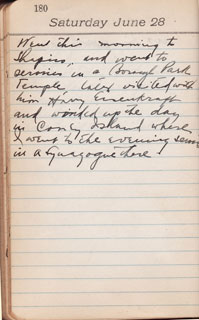
 We do know the locations of
We do know the locations of 
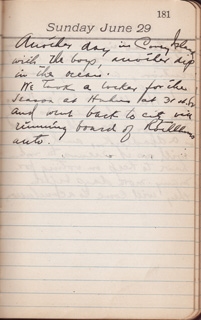
 when I initially transcribed this entry, and I figured it might refer to a street intersection or a public park or something like that. But, thanks to the good people who aided my inquiry into the matter at the
when I initially transcribed this entry, and I figured it might refer to a street intersection or a public park or something like that. But, thanks to the good people who aided my inquiry into the matter at the 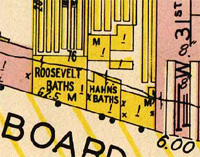 we now know that Papa was talking about Hahn’s Baths at West 31st Street.
we now know that Papa was talking about Hahn’s Baths at West 31st Street. 


